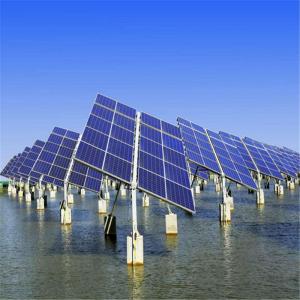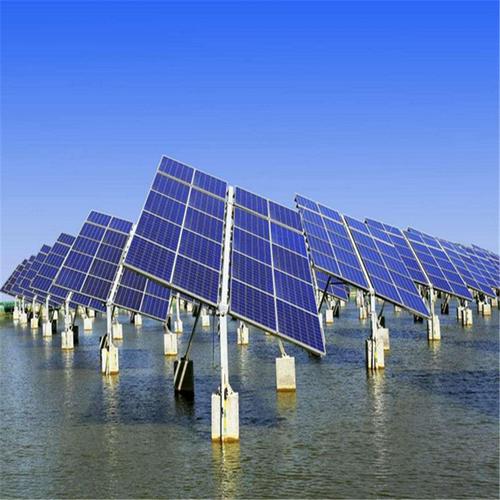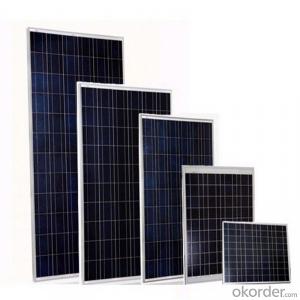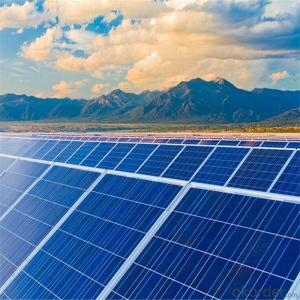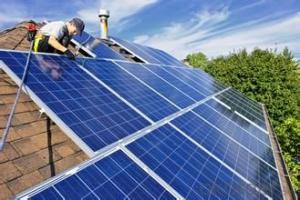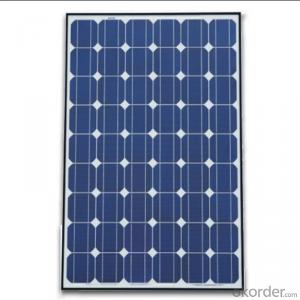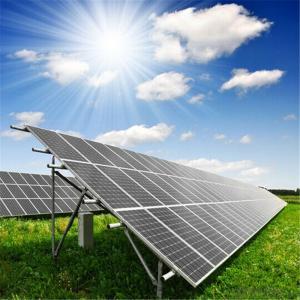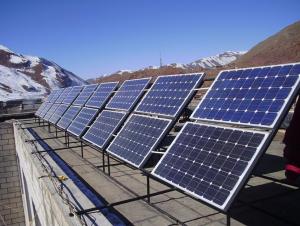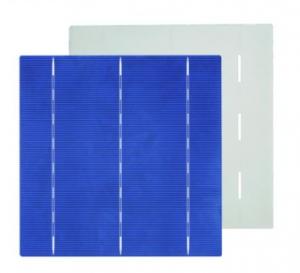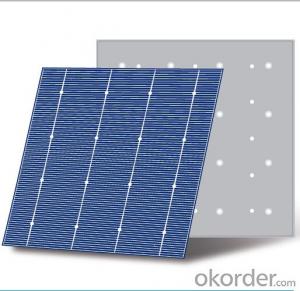230 Watt Photovoltaic Poly Solar Panels
- Loading Port:
- China main port
- Payment Terms:
- TT OR LC
- Min Order Qty:
- 1000 watt
- Supply Capability:
- 500000 watt/month
OKorder Service Pledge
OKorder Financial Service
You Might Also Like
Specification
Instruction
Quality and Safety
1. Rigorous quality control meets the highest international standards.
2. High-transmissivity low-iron tempered glass, strong aluminium frame.
3. Using UV-resistant silicon.
4. IS09001/14001/CE/TUV/UL
5.3w-300w mono & poly solar panel supply
Warranties
1. 10 years limited product warranty
2. 15 years at 90% of the minimal rated power output
3. 25 years at 80% of the minimal rated power output
Feature
1. High efficiency and High power.
2. Long-term electrical stability.
3. Lowest price and Fastest delivery.
4. Good quality and good service.
5.Bulk supply
6. Good Warranty
7.Big Sale
8.High quality
9.More than 35 years on the lifetime.
10 DHL/Fedex/UPS/TNT/EMS etc
Images
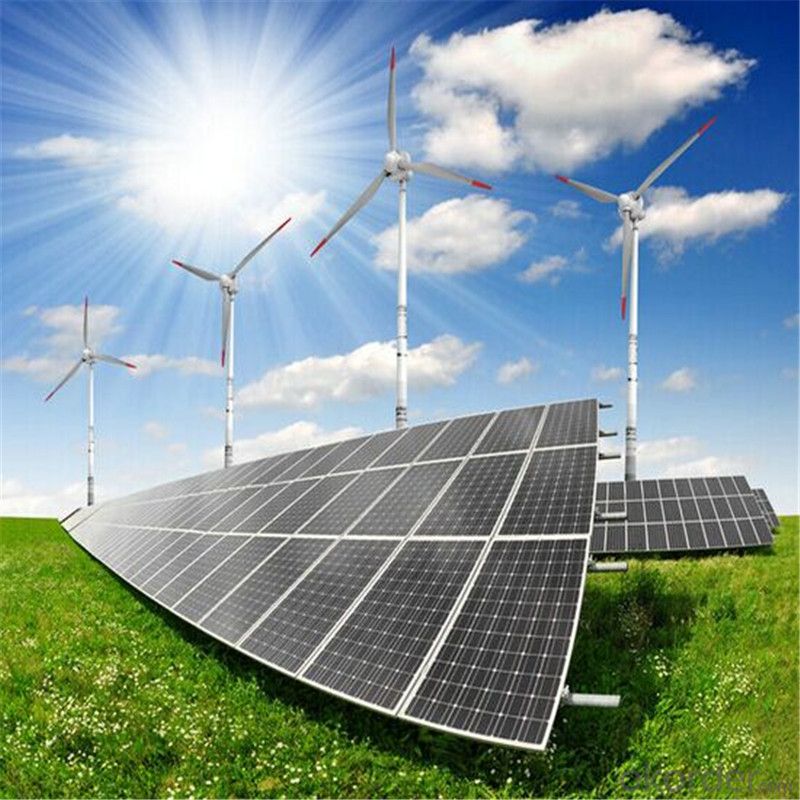
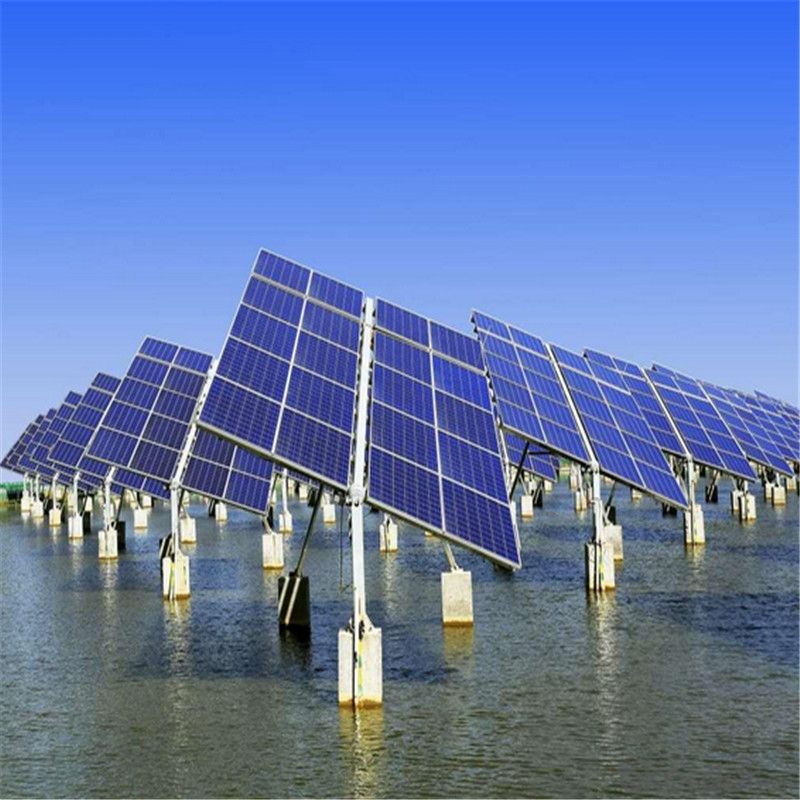
Specification
Model | SIM-100 |
Maximum Power at ST(Pmax)W | 100Wp |
Maximum Power Voltage(Vmp)V | 18.0V |
Maximum Power Current(Imp)A | 5.56A |
Open Circuit Voltage(Voc)V | 22.0V |
Short Circuit Current(Isc)A | 5.9A |
Cell Efficiency(%) | 17.0% |
Module Efficiency(%) | 15.37% |
Operating Temperature°C | -40°C to 85°C |
Maximum system voltage | 1000V(IEC)DC |
Power tolerance | -0.03 |
Temperature coefficients of Pmax | -0.45%/°C |
Temperature coefficients of Voc | -0.27%/°C |
Temperature coefficients of Isc | 0.05%/°C |
Weight(kg) | 7.4 |
Number of cell(pcs) | 4*9 |
FAQ
We have organized several common questions for our clients,may help you sincerely:
1). What’s price per watt?
A: It’s depends on the quantity, delivery date and payment terms of the order. We can talk further about the detail price issue. Our products is high quality with lower price level.
2). Can you tell me the parameter of your solar panels?
We have different series of cells with different power output, both from c-si to a-si. Please take our specification sheet for your reference.
3). How do you pack your products?
We have rich experience on how to pack the panels to make sure the safety on shipment when it arrives at the destination.
4). How long can we receive the product after purchase?
In the purchase of product within three working days, We will arrange the factory delivery as soon as possible. The perfect time of receiving is related to the state and position of customers. Commonly 7 to 10 working days can be served.
- Q: PV: the battery to the battery charge problem
- Battery affected. Then according to the volt-ampere characteristics of solar energy, we can know that the actual output power of the solar panel is less than its nominal power.
- Q: On the parallel connection of solar cells
- if this group of bad The phenomenon of short-circuit, that the solar cells on the electrical equipment and output, but the voltage is reduced; if it is a parallel combination, then I suggest Each group of "output" line in series with a "switch" type of diode, so, if in which one of the short-circuit damage, other normal solar cells will not be bad on this group of "anti-charging" and Damage to other normal solar cells, if this group of bad conditions for the open circuit, it is only to reduce the entire solar cell "external" output current, will not cause other failures.
- Q: How do solar cells perform in extreme weather conditions?
- Solar cells can perform well in extreme weather conditions, including high temperatures and cold temperatures, as long as they are properly designed and installed. However, extreme weather events such as heavy snow or hailstorms can potentially damage solar panels. Overall, solar cells are quite resilient and can continue to generate electricity even in challenging weather conditions.
- Q: Can solar cells be used for powering electric fences?
- Yes, solar cells can be used for powering electric fences. Solar cells convert sunlight into electrical energy, which can be stored in batteries and used to power electric fences. This provides a sustainable and environmentally-friendly solution for powering fences in areas where access to grid electricity is limited or expensive.
- Q: Can solar cells be used for powering data centers?
- Yes, solar cells can be used for powering data centers. Solar energy can be harnessed and converted into electricity through solar cells, which can then be used to power the energy-intensive operations of data centers. This renewable energy source can help reduce the environmental impact of data centers by decreasing their reliance on fossil fuels and mitigating carbon emissions. However, the feasibility of using solar cells for data centers depends on factors such as the availability of sunlight, the size of the data center, and the energy requirements of the facility.
- Q: Are solar cells affected by electromagnetic interference?
- Yes, solar cells can be affected by electromagnetic interference (EMI). EMI refers to the disturbance caused by electromagnetic radiation on electronic devices, including solar cells. The interference can lead to reduced efficiency and performance of the solar cells. Shielding techniques and proper grounding can be employed to mitigate the impact of EMI on solar cells.
- Q: Solar panel resistance is changed with what
- To be sure that this question is very professional. Secondly, I have to answer this question: the internal resistance of solar energy, mainly reflected in the power generation, the inhibition of current. In the time of power generation,
- Q: How do solar cells affect the electric grid?
- Solar cells can have a significant impact on the electric grid by generating clean and renewable energy. When connected to the grid, solar cells produce electricity during the day, reducing the overall demand for power from traditional sources. This reduces the strain on the grid and decreases the need for fossil fuel-based power plants. Additionally, excess solar energy generated by these cells can be fed back into the grid, providing a source of power for others and contributing to a more resilient and sustainable energy system.
- Q: Does solar cell cost less than the other power generation technology?
- It saves incredible cost because it is an infinite supply of energy.
- Q: Can solar cells be used to power homes?
- Yes, solar cells can be used to power homes. Solar panels, made up of multiple solar cells, convert sunlight into electricity that can be used to power household appliances and lighting. This renewable energy source can provide a sustainable and cost-effective solution for residential power needs.
Send your message to us
230 Watt Photovoltaic Poly Solar Panels
- Loading Port:
- China main port
- Payment Terms:
- TT OR LC
- Min Order Qty:
- 1000 watt
- Supply Capability:
- 500000 watt/month
OKorder Service Pledge
OKorder Financial Service
Similar products
Hot products
Hot Searches
Related keywords
